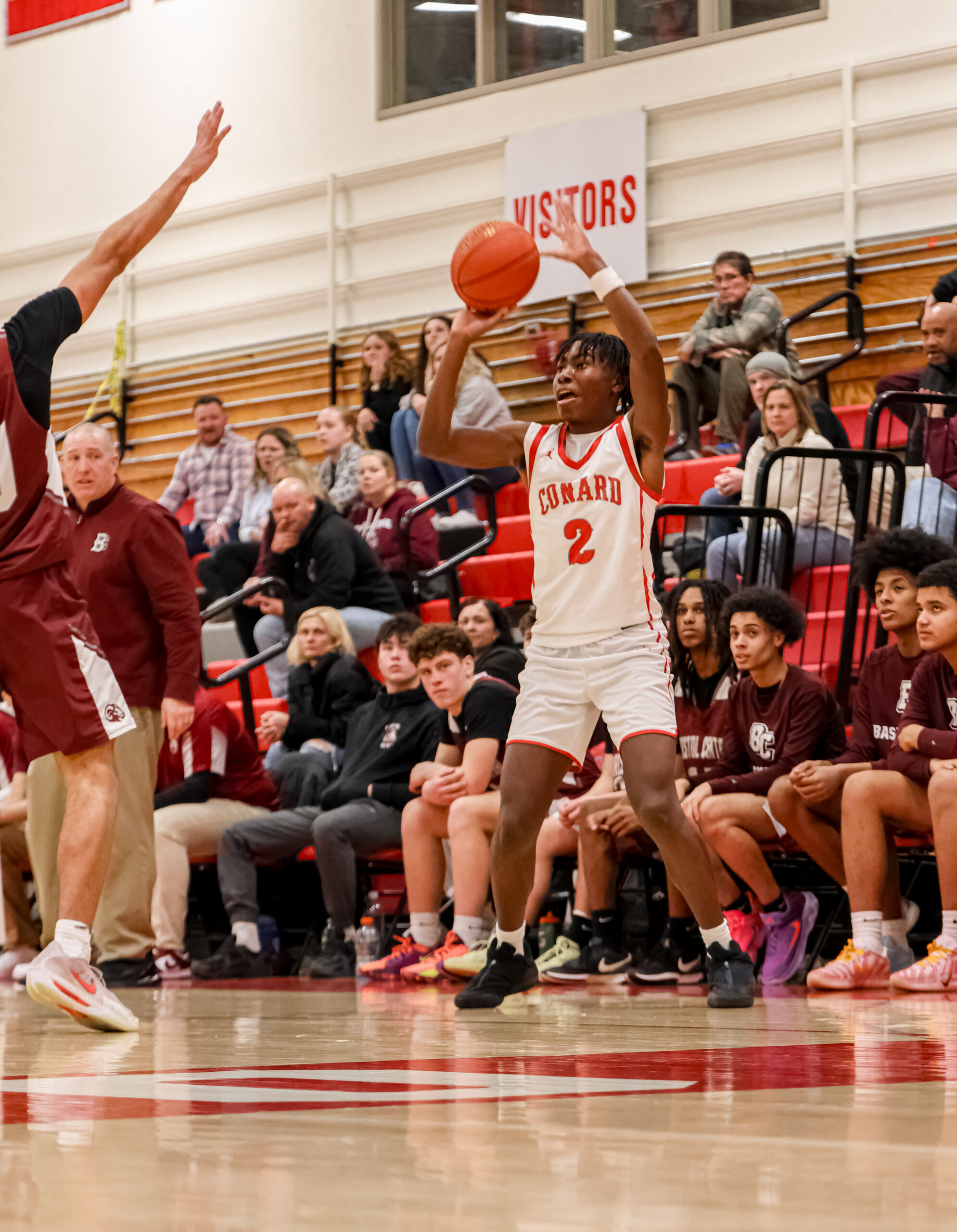Meet West Hartford’s AFS Students: Joshua Quartey from Ghana

Audio By Carbonatix
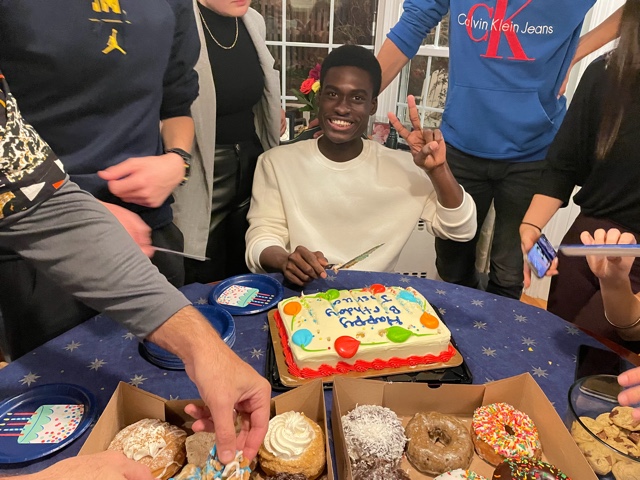
Josh on his birthday in West Hartford!. Courtesy photo
This is the next article in our series this year, ‘Opening our homes and minds: West Hartford’s AFS foreign exchange students and their host families.’
Interviewed and edited by Jamie Cohen, AFS host mom and volunteer (now), host sister (1980s), and returnee from Japan (1984)
Meet Joshua Quartey from Accra, Ghana. He is one of five AFS foreign exchange students living in West Hartford this school year out of 24 in the Connecticut/Southern New England AFS chapter.
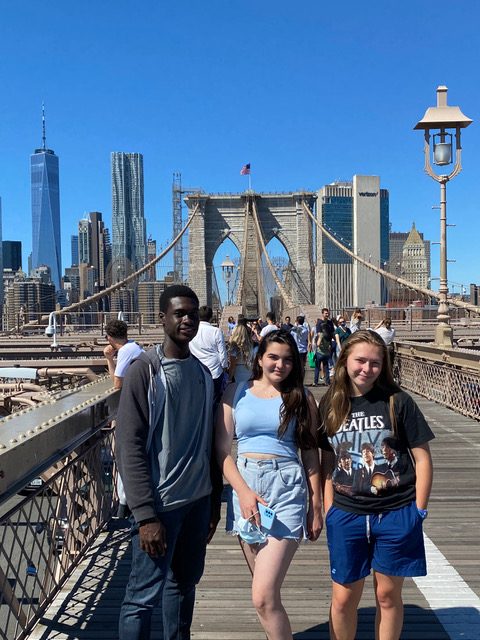
Josh, with his sisters Monika (Armenia) and Elise Adamenko. Courtesy photo
Hi, Josh! Tell us about yourself.
I’ve come here on the KL-YES scholarship from Ghana, West Africa. (About 1,200 people applied for 21 scholarships). I’m a senior at Conard. I live with a very great family. I live with the Adamenko/Josephson family, who are also hosting Monika from Armenia. We are now seven in the family, if you count Ruby the dog and the two cats, Simon and Chloe.
Actually, I won the scholarship in 2019, when I was in ninth grade in Ghana, and was supposed to come in August 2020. But because of the pandemic I had to wait a year to get here. The goal of my scholarship is to share my culture, experience life in the U.S., and then bring the experience back to help my country. The 20 of us who won the scholarship (out of about 2,000 people who applied) plan to develop a charity to help underfunded schools with the help of AFS Ghana when we are back.
Why did you want to be an AFS exchange student?
I never thought about being an exchange student (I don’t come from a wealthy family) in high school. But my dad heard about the YES scholarship, and so I wrote the application because I heard that the U.S. has great schools. I knew it would be hard, but the advantages would outweigh the disadvantages. I wanted to get out of my comfort zone.
I like to socialize a lot – and I thought that widening my social circle – like having friends from all over the world would be great. Because not only is the U.S. a melting pot, but I’d meet the other exchange students so I would meet people from so many countries. I could learn so much from them. I lived in my state my whole live and had not left Ghana until I came here. I had heard about some stereotypes about America and Americans, and I wanted to experience it for myself. But being with an American family would give me a view of what living in America is.
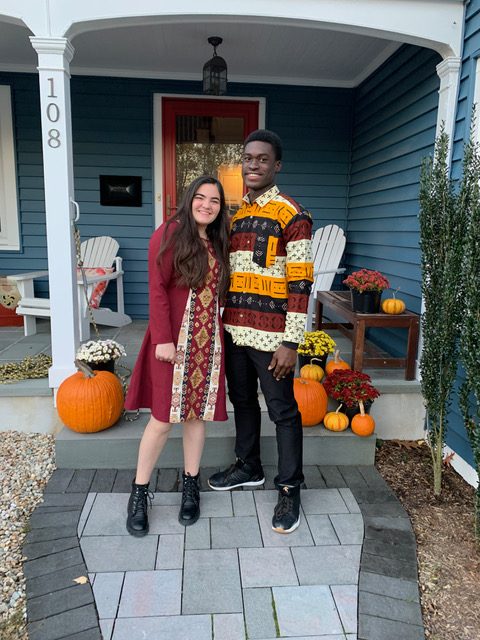
Monika and Josh at home in West Hartford, dressed in native garb, getting ready to speak to Webster Hill students. Courtesy photo
What are the biggest cultural differences between Ghana and here?
One of the biggest differences I noticed is around talking and eating at the dinner table. Because we were colonized by the British, we were taught that it was bad manners to talk while we are eating. We talk after we are done with the meal. We wait until everyone is done eating before engaging in conversation.
Another difference is the concept of time. Here in the U.S. time is exact. If someone says, “give me a minute,” here is means about 60 seconds. In Ghana, it means more like 5 minutes. In school, it’s exact – in Ghana the teachers will also take an extra 5 or 10 minutes from the next class and no one is bothered.
What have you liked about Connecticut and West Hartford?
I’ve really enjoyed the way of life and the way things are done here. By that I mean there are so many things that are not so complicated to do – a lot of things are available online, for example. Also, I’ve lived in a big city (2 million people) my whole life. It’s crowded because it’s the capital. Here it’s more serene and I really enjoy it. I really like my school, and I enjoy going to the Center.
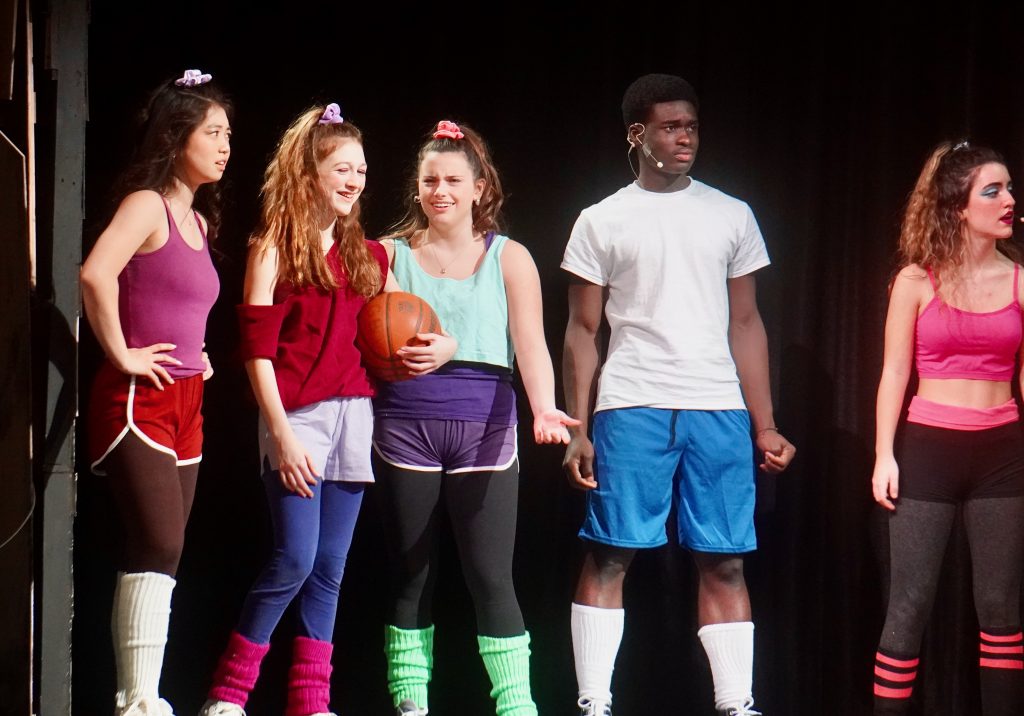
Josh (second from right) performs in the Conard High School Performing Arts production of “Footloose.” March 2022. Photo credit: Ronni Newton (we-ha.com file photo)
What do you do outside of school here?
I started doing Tae Kwan Do here, and really enjoy it. I volunteer with some of the kids’ classes. I’m in the Voices of the World choir at Conard, too. The highlight of my year so far was being a part of the musical, Footloose! We don’t have productions like this in schools in my country. I tried out and I got to work with amazingly talented people – and made friends and really strong bonds with so many people I wouldn’t have met otherwise.
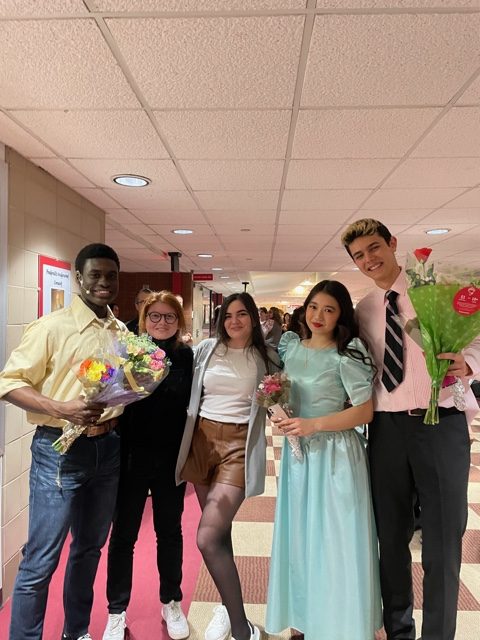
From left: Josh, Irene (italy), Monica (Armenia), Elena (Japan), Bogdan (Montenegro) – all 5 AFS studnets at Conard and all 5 involved in Footloose! Courtesy photo
What would you like people reading this to know about:
Ghana: My country is a very peaceful and hospitable country. We have beautiful tourist sites, and great food. I think you should all come visit – I’ll give you a tour!
Hosting an AFS exchange student: I would say that if you want to host, you should GO FOR IT. There are so many benefits and it can expose you to a lot of new things. When host an exchange student, you should be ready and prepared for anything – there’s lots of good and sometimes some challenges. You have to be flexible. But as a host family, I believe that you are wanting to also learn about another culture.
Being an AFS exchange student: To study in another country, you have to be truly ready to try new things. To adjust. To be flexible. And very sociable and outgoing. Because you’re abroad to meet new friends and you have to not be afraid to approach them. If you go thinking people will just come talking to you, you’ll be wrong. You have to go up and talk to them.
About AFS:
AFS-USA, a non-profit organization, has been a leader in international student exchange for more than 70 years. Its mission is to enhance the global competency of U.S. citizens by providing intercultural learning experiences for individuals, families, communities and schools through a global volunteer partnership. Each year, AFS-USA awards more than $3 million in scholarships and financial aid to U.S. students applying to study abroad, and it maintains a network of more than 4,000 U.S. volunteers who support participating educators, students and families nationwide.
If you are interested in hosting an exchange student, or if your high-school aged student would like to participate in an AFS exchange, please contact Jamie Cohen at [email protected] or visit afsUSA.org.
Like what you see here? Click here to subscribe to We-Ha’s newsletter so you’ll always be in the know about what’s happening in West Hartford! Click the blue button below to become a supporter of We-Ha.com and our efforts to continue producing quality journalism.



